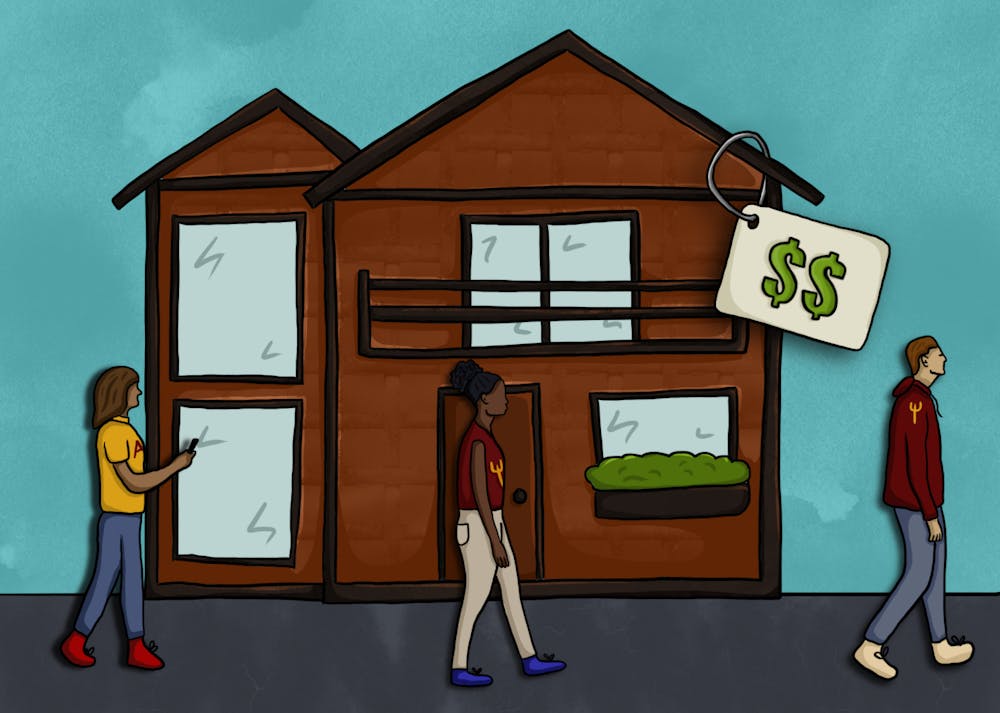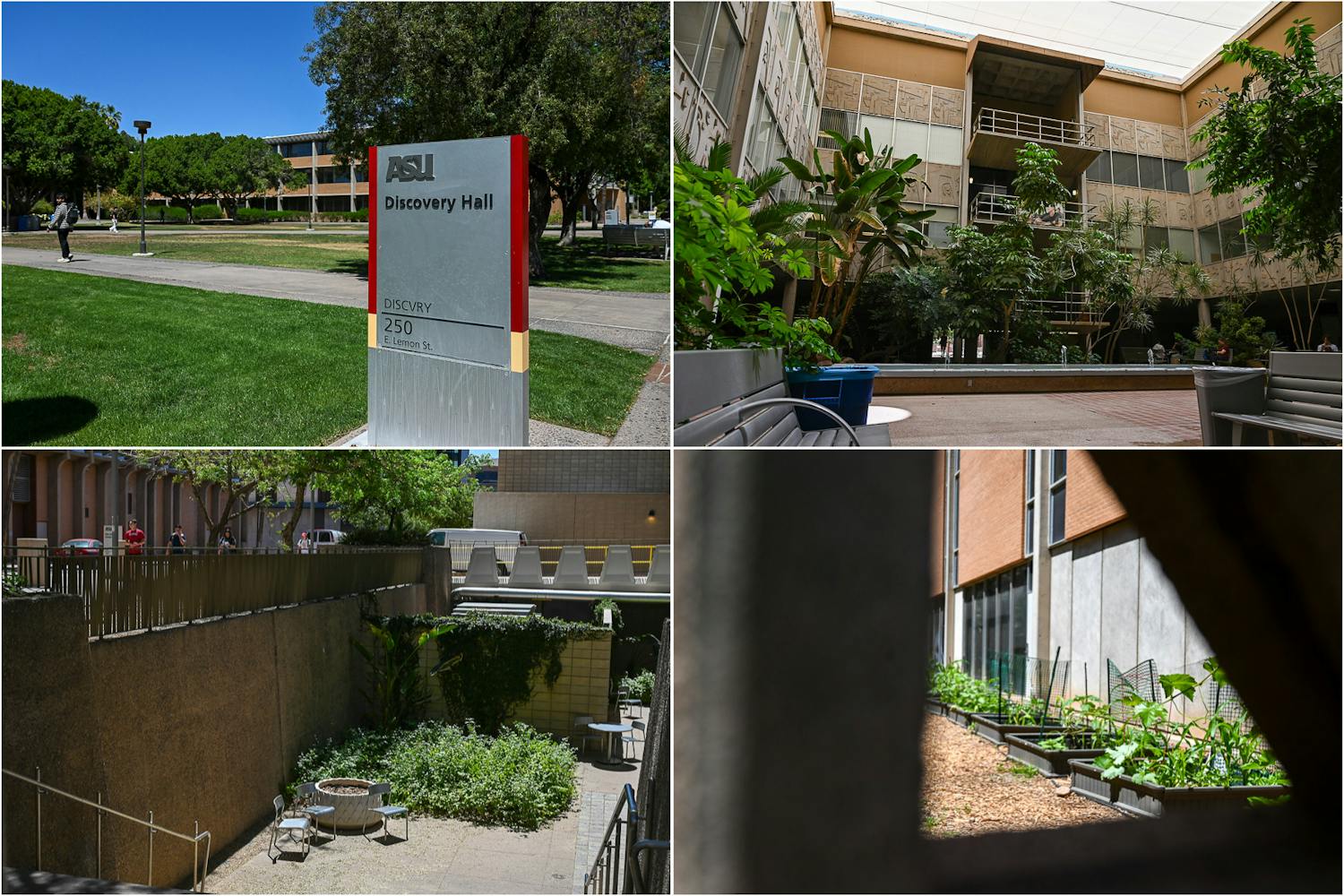The city of Tempe’s housing division has laid out a plan to build multiple affordable housing developments close to ASU’s Tempe campus.
The Apache Boulevard redevelopment project plans to add as many as 500 affordable housing units to four areas in Tempe adjacent to Apache Boulevard.
Larry Schmalz, the redevelopment manager for the city of Tempe, said Apache Boulevard has available land to build the developments and is close to the Valley Metro light rail, making it a prime location.
Tempe City Council approved a $1.2 million investment for the project through the Hometown for All affordable housing initiative. The Tempe City Council established the Hometown for All initiative in 2021 to streamline funding for affordable public housing.
“We’re excited to see these projects move forward to increase affordable and workforce housing in Tempe and need community input to help us shape the future of Apache Boulevard,” Woods said in a press release on March 10.
There are four plots of land that will be developed. Two of the areas are about a half-mile from the Tempe campus. One of them will be built on Dorsey Lane and Lemon Street, another on Dorsey Lane and Apache Boulevard and two more that are more east along Apache Boulevard.
The developers that are working on the project have contractual obligations to make the units affordable. The city of Tempe and the state of Arizona will dictate what they deem affordable. "I can guarantee it'll be affordable," city of Tempe housing and revitalization manager LeVon Lamy said.
Affordable housing is defined by the U.S. Department of Housing and Urban Development as housing that does not require a household to spend more than 30% of its gross monthly income on housing.
The housing eligibility will be decided by income, and the city has not decided on that price bracket yet, Lamy said.
The two projects closest to campus on Dorsey Lane will be developed by Artspace, a development company that specializes in developing housing projects catering to artists. Lamy said the units will cater more toward artists but is open to all, calling it "preference housing."
"(Artists are) not the only folks who can live there," Lamy said. "It's just a preference for folks who are artists who live in workspaces or do that type of careers, trade or profession."
The development on Lemon and Dorsey will be a five-floor building with a parking garage with 68 affordable housing units. The development on Apache and Dorsey will also have five floors and have 80 affordable housing units and a parking garage. Both will share parking spots with the existing park-and-ride spots that align with the Dorsey/Apache Valley Metro light rail station.
The other two developments are planned further east of the Tempe campus, each of them located just off Arizona State Route 101 and about three miles from campus. One of the developments could add up to 250 units, and the other could add up to 106 units. The city is currently seeking a developer for the larger concept through a request for proposal.
The project is still in its early stages, however, and has yet to be presented to the city council. The city held public meetings to get feedback on the projects on March 16.
“We're very early on in the development of these projects,” Schmalz said. “This was just the initial public meeting, just to let people know that the lands that we're looking at will be developed at some point in the future.”
Schmalz said the city does not know how much the project is going to cost when they are finally built.
Brandon Ortega, a junior studying political science, said he does not think the redevelopment project is enough to stem the rapidly rising housing costs in Tempe.
"I think it's a little too late to be honest," Ortega said. "Because Tempe has had a housing crisis since a couple of years now."
The average rent for a one-bedroom apartment in Tempe is over $1,400 a month. This is a 21% increase from the previous year, according to Zumper.
READ MORE: Tempe seeks affordable housing solutions to the housing crisis
Ortega said this project should have happened a long time ago. He said developers come into Tempe and take advantage of the housing market and the market of ASU employees and students.
"The students and residents aren't getting anything in return," Ortega said.
Even with this project being developed, Ortega thinks that the city can still do more.
"They're definitely focusing more on outside development, tourism and stuff like that. I know they're doing a little bit of affordable housing, but I don't think it's enough," Ortega said.
Reach the reporter at sbrenna5@asu.edu and @shanebrennan36 on Twitter
Like The State Press on Facebook and follow @statepress on Twitter.

Shane Brennan is the former Editor-in-Chief at The State Press and an ASU alum. He was a sports and politics reporter, before becoming the editor of the politics desk. He has covered local and state politics for the Arizona Capitol Times and Cronkite News.




